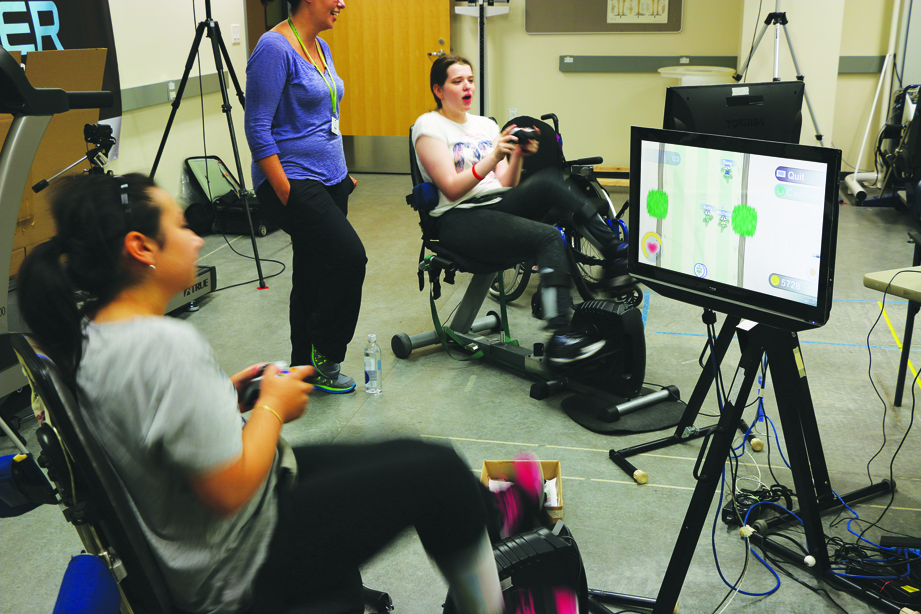National Trials in Rehabilitation: Liberi-Exergame & dCTS Trials
Project Category: Projects – Cycle II
January 5, 2021

Challenge
New therapies for individuals with cerebral palsy (CP) with commercialization potential are emerging, but face barriers to a successful rollout. The CP Discovery Project evaluated two interventions. One was a videogame-linked stationary bicycle designed to improve fitness and social interaction. The other was a trial of direct electrical stimulation paired with therapy to improve hand function.
Project Summary
Liberi Exergames
As they age into their teens, children with CP become less active. They lose cardiovascular fitness, and their social world often shrinks. Combining a customized stationary bicycle with adapted multiplayer video games, the Liberi Exergame is an intervention that builds fitness while fostering a connection with other teen players. Players power a suite of video games by pedalling a stationary bicycle. In-game rewards are offered for achieving an elevated target heart rate to build cardiovascular fitness, and the game allows small groups to play together online or in person.
Transcranial Direct Current Stimulation (tDCS)
Hemiplegic cerebral palsy is a common form of CP, and children with this form of CP have weakness or lack of coordination on one side of the body. Transcranial Direct Current Stimulation (tDCS) may augment the positive effects of a proven intervention called ‘constraint therapy.’ This non-invasive therapy administers a small current via electrodes to the brain surface. Researchers hope to establish that tDCS can enhance motor function more so that constraint therapy alone, in these children by strengthening and increasing connections.
Result
After promising initial pilot studies, KBHN’s researchers extended the Liberi Exergames to allow youth with different levels of physical abilities to play together. They completed an Ontario/B.C.-based trial where children from both provinces played together. The researchers also explored new sources of funding through the Ontario Brain Institute, more evaluations, and developing a Liberi Exergames toolkit. They have also developed a commercialization plan in partnership with Queen’s University/Holland Bloorview Kids Rehabilitation Hospital. . As for the use of tDCS, it received significant funding from CHILD-BRIGHT to proceed with a 3-site multi-centred trial. More information is available at Stimulation for Perinatal Stroke Optimizing Recovery Trajectory (SPORT) — CHILD-BRIGHT Network.
Funding
This subproject was part of the larger “Cerebral Palsy Discovery Program.” The CP program was funded a total of $1,281,909 from the Kids Brain Health Network and $2,296,662 from participating partners.
Team
Dr. Darcy Fehlings, Holland Bloorview Kids Rehabilitation Hospital
Dr. Adam Kirton, University of Calgary
Dr. Nicholas Graham, Queen’s University